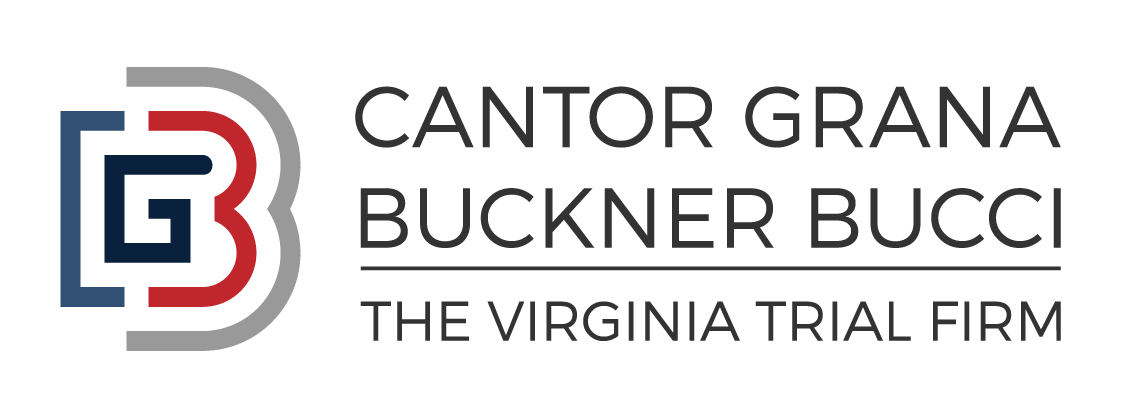LET OUR VIRGINIA CAR ACCIDENT ATTORNEYS HELP YOU MOVE FORWARD
Contact our firm now online or by phone at (804) 644-1400 to schedule a free accident case evaluation with our Richmond car accident attorneys.
Car accidents occur in a variety of ways. From fender benders to high-speed head-on collisions, the scenarios are almost endless. But one of the most common causes of a car accident is a rear-ended collision.
If you or a loved one has been involved in a rear-end collision, you may be eligible to seek compensation from the at-fault party. At Cantor Grana Buckner Bucci, we can help you file a personal injury claim against those liable in the accident and seek compensation to help you pay for these damages.
Frequency and Causes of Rear-end Crashes
Rear-end collisions are one of the most common types of car accidents.
In fact, according to the National Highway Traffic Safety Administration (NHTSA), they account for nearly 30% of all crashes.
Common causes of rear-end collisions include:
- Driving under the influence. When the at-fault driver is under the influence of drugs or alcohol, their reflexes and response times are slowed, making successful short stops much less likely.
- Distracted driving includes texting, putting on makeup, changing the radio, looking away from the road, or eating.
- Weather. Fog, rain, snow, sleet, ice, and high winds can affect someone’s vehicle control regardless of the speed limit.
- Sudden stops happen frequently and cause rear drivers to go too fast when approaching a red light.
What Are the Injuries Associated With Rear-End Collisions?
The injuries associated with a rear-end crash can vary depending on the collision’s severity and can happen to both the lead driver and the rear driver. Some of the most common injuries include neck and back pain, whiplash, head injuries, and spinal cord damage.
- In addition to the injuries listed above, other common injuries include:
- Back injuries – Even at low speeds, the force of impact from another car can end up compressing your spine as well as the disks in your lower back area.
- Whiplash – If the driver’s head is jerked forward violently, they could suffer neck strain or whiplash, which causes back and neck pain as well as headaches.
- Seatbelt injury – When you have your seatbelt on during a rear-end car accident, it’s going to hold your body firmly in place. The powerful force of the rear-ending can lead to scrapes and bruises on the torso, shoulders, and neck.
- Broken bones – When a sudden acceleration of speed has thrown the body, it can lead to broken bones in the arms and legs and neck fractures.
- Head injuries – These injuries can happen no matter the vehicle’s speed. If your airbags don’t deploy, your head can bang into the steering wheel in front of you. This can fracture your cheek and jawbone or break your nose.
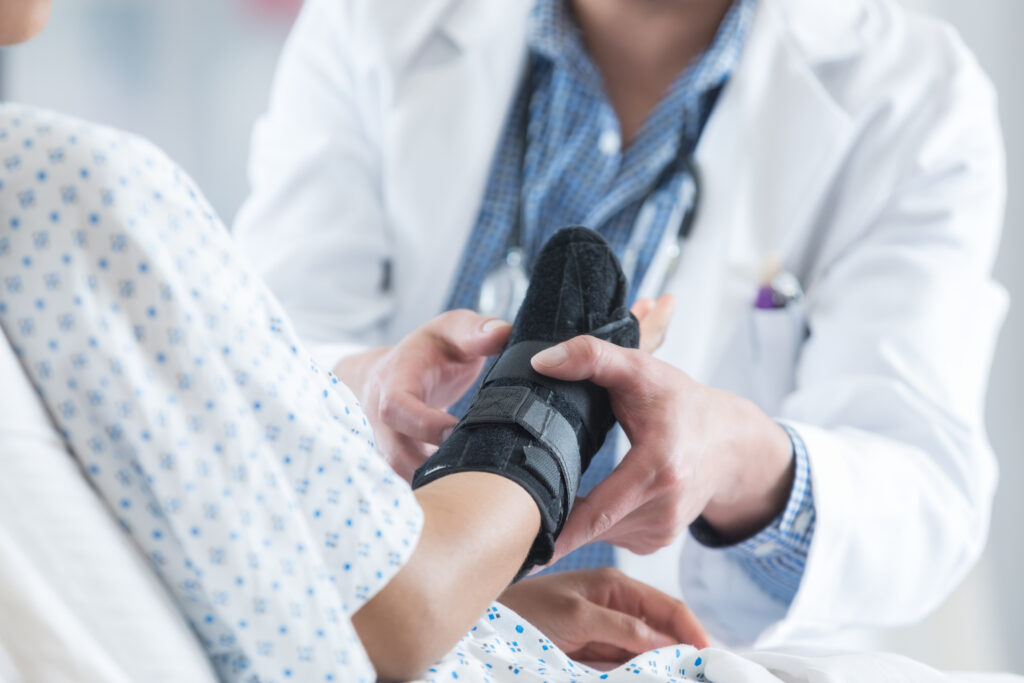
What Should I Do After a Rear-End Accident?
If you have been involved in a rear-end car accident, follow these steps:
- Check for injuries and call 911 if necessary.
- Take photos of the damage to your car and any visible skid marks on the road or debris left behind by the other vehicle.
- Contact our firm to discuss seeking compensation for damages through filing an insurance claim or a lawsuit.
- Do not admit fault to anyone, including the police or insurance adjusters. Instead, wait for the official accident report before making any decisions.
- Seek medical attention if necessary.
If you have been injured in a rear-end crash, don’t hesitate to contact Cantor Grana Buckner Bucci today for a free consultation. We can help you seek compensation for your injuries and damages.
Comparative Negligence vs. Contributory Negligence
It is important to note that Virginia is a “Fault” car accident state for car accidents. This means that the person who was at fault for causing the car accident is also responsible for any resulting harm.
Comparative Negligence
In some cases, a rear-end accident is considered 50% the fault of each driver.
This means that if you are the lead driver, and therefore, have been rear-ended and are injured and decide to file a claim against the driver of the rear vehicle, you will only be able to recover damages up to 50% of your total damages.
For example, if your medical bills are $20,000 and the other driver is responsible for getting you to your appointments, but they did not contribute to your injuries in any way. You may only recover up to 50% of the total cost of medical care.
However, Virginia is one of the few states does not follow comparative negligence. Instead, we follow ‘contributory negligence’ . . .
Contributory Negligence
If the rear driver rear-ended a lead vehicle because they were going too slow and causing a traffic backup behind them, then your case may be determined as contributory negligence.
You are at fault for the other drivers’ injuries or damages in this situation. However, since you contributed to getting into an accident by following too closely, you will only be able to recover damages if you were determined to be completely without fault.
If the other driver is found 100% at fault for their injuries or damages, they are not entitled to any compensation; however, if you are found to be at fault, at all (even 1%), then under Virginia law you cannot recover.
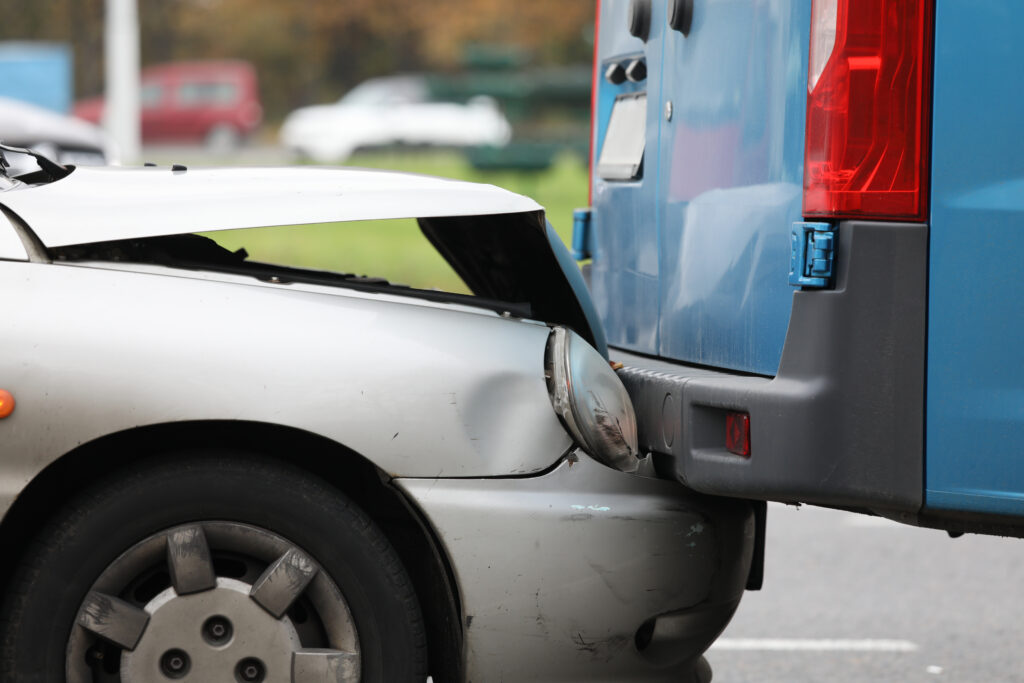
Who Is At-Fault in a Rear-End Collision?
Generally, the rear driver is considered at fault in a rear-end car accident. However, if you were driving behind another vehicle and got into an accident with them after another driver crashed into your car from behind, then you may be able to file a claim against their insurance company.
What Factors Are Considered in Determining Fault?
determining liability for rear-end collisions include several factors:
- The distance between the two vehicles immediately before the crash.
- The speed of both cars at the time of impact.
- Whether or not either driver braked before the collision.
- The location and angle of impact.
- Weather conditions and visibility.
- Witness testimony.
Our firm can help you find out who should pay for your damages and injuries from a rear-end collision by filing an insurance claim or taking legal action against those responsible if necessary.
What if Multiple Vehicles are Involved?
When several vehicles are involved in rear-end car accidents, the potential for injuries and fatalities increases.
This is because when one car slams on its brakes, the cars behind it are forced to do likewise. This can cause a chain reaction which can result in serious injury or death.
The cars that initially got into the accident are often blamed for the damage in these accidents. However, multiple drivers could be liable in a multi-car rear-end accident.
In some cases, liability for the accident could involve neither driver involved in a rear-end collision. A rear-end accident could be caused wholly, or in part, by:
- Another reckless driver;
- Vehicle brake manufacturer;
- Hazardous road conditions;
- An animal running out into the street; or
- Cyclist or pedestrian.
Can I File a Claim Against Someone Else?
Yes! If you have been involved in a rear-end crash caused by someone else, contact our firm to discuss filing a claim against them.
If you were injured in the collision, our firm could help you seek compensation for medical expenses and injuries.
Our firm also helps those who have suffered property damage due to someone else’s negligence file an insurance claim with their insurer or take legal action against the liable party if necessary.
What Can I Do If My Car Was Damaged?
If your car was damaged in a rear-end collision, you might be able to file an auto insurance claim with your insurer for reimbursement of damages.
You will need proof that the lead driver caused damage to your vehicle and that they are at fault for the accident.
In addition, you may have to file a police report and take photos of your car’s damage before contacting an attorney specializing in auto accidents.
How Much Compensation Can I Receive?
Compensation for rear-end collisions can vary depending on the damages suffered.
Generally, you can seek compensation for medical expenses, property damage, lost wages, and pain and suffering.
What Damages Can I Recover?
If you have been rear-ended, you may be eligible to seek compensation for the following damages:
- Medical expenses, including emergency treatment and future medical care
- Property damage (if any)
- Lost wages due to time off work while recovering or because of permanent injuries caused by the crash. This includes payment for missed days at your job, loss of promotions or increased responsibilities that may have come with a new position, and potential loss of income if you are no longer able to work in the same capacity as before
- Pain and suffering
- Mental anguish
What If I Was Injured?
If you were rear-ended and suffered injuries, you might be able to file a personal injury claim against the rear driver. You will need to prove that they were negligent in causing the accident and that their negligence resulted in your injuries.
In addition, you will likely have to provide medical documentation of your injuries and treatment.
Can I Still Sue If My Injuries Are Minor?
You may sue if your injuries are minor, but it is essential to speak with an attorney first. Several factors must be considered, including the severity of your injuries, the amount of damages being sought, and whether or not the other driver has liability insurance.
Suing for damages in a minor car accident can be complicated and time-consuming, so it is vital to have an experienced attorney on your side. Sometimes it makes sense to hire an attorney – and sometimes it doesn’t. Call our experienced accident attorneys and we can advise you if it makes more sense to handle your claim on your own.
What If I’m Injured and Can’t Work?
If you are injured in a rear-end collision and cannot work, you may be able to file a claim for lost wages. To do so, you will need to provide documentation of your income, including pay stubs, W-2 forms, or tax returns.
You can also seek compensation for future lost wages if you cannot return to work.
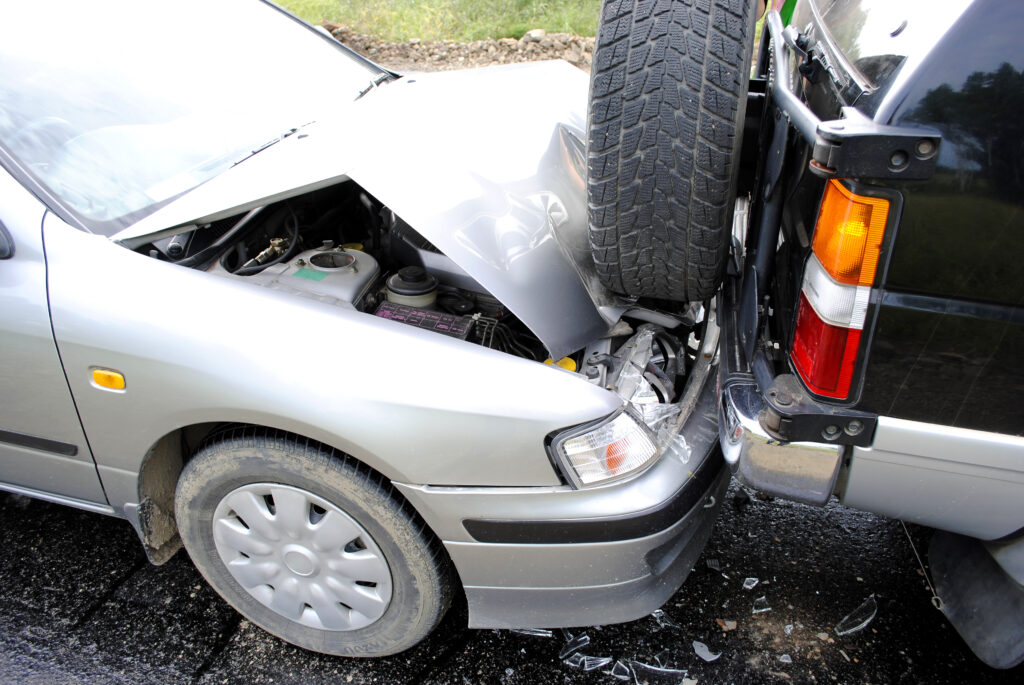
Death of a Loved One in a Rear-End Collision
If a loved one was killed in a rear-end collision, you could seek compensation for their wrongful death.
The damages available in a wrongful death lawsuit can include burial expenses, lost financial earnings the victim would have earned, and compensation for the loss of companionship, affection, and support. In a wrongful death lawsuit, certain family members can recover damages in Virginia, possibly including:
- Spouses
- Children
- Grandchildren (if the individual’s children are deceased)
What Is the Statute of Limitations for Filing a Claim for a Rear-end Collision?
In Virginia, you have two years to file a claim for damages. This is called the statute of limitations.
If you wait longer than this time period to contact an attorney or file your case against another party, it may be dismissed entirely because there are no longer valid claims.
At Cantor Grana Buckner Bucci, we can help you file a claim or take legal action before the statute of limitations expires so that you are not left with no options for compensation if your injuries prevent you from working and earning an income.
How Can a Car Accident Attorney Help Me?
Our experienced car accident attorneys specialize in auto accidents. They can help you file an insurance claim or personal injury lawsuit, as well as guide you through the process of seeking damages.
We can also advise you on whether or not to accept a settlement offer from the at-fault driver’s insurance company.
Determining Fault in the Rear-end Collision
The Virginia Trial Group can help you determine who is at fault in a rear-end collision and advise you on what to do next. We will begin by obtaining information about the accident, including but not limited to:
- Details of the accident;
- The police report; and
- Witness statements.
We will then negotiate a settlement with the insurance company or file a lawsuit if necessary.
How Much Should I Settle for After a Rear-end Car Accident?
If you have been injured in a rear-end collision, speaking with an attorney before settling with the insurance company is important.
Settling for the wrong amount can prevent you from receiving the full compensation you deserve for your injuries and damages.
Our firm can help you negotiate a fair settlement with the other driver’s insurance company or take legal action if necessary.
What Can I Do to Prevent Rear-end Accidents?
The best way to avoid rear-end accidents is to be aware of your surroundings and drive defensively.
Ensure you follow the speed limit, use your turn signals, and regularly check your mirrors.
If you see a car stopped ahead of you, do not slam on your brakes; instead, slow down gradually and move into another lane if possible.
You can avoid rear-end collisions and ensure that the rear driver was truly at fault for your injuries by taking these precautions.
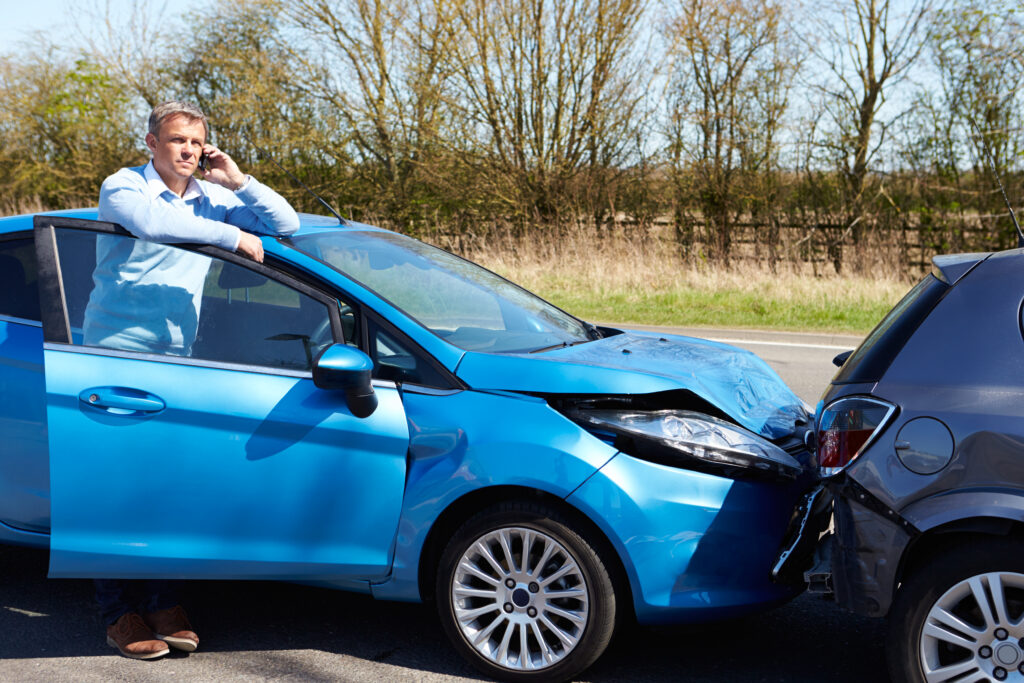
Contact The Virginia Trial Group Today For A Free Consultation With Our Personal Injury Lawyers
Rear-end accidents can bring your day to a halt, and they can be physically and emotionally draining. You may feel overwhelmed and unsure of where to turn for help in the aftermath.
At Cantor Grana Buckner Bucci, we have years of experience helping people get the compensation they deserve after a car accident. Our personal injury attorneys work tirelessly to ensure you are protected and receive the maximum amount available to you. In addition, we offer a free initial consultation to discuss your case with us, learn about the legal process, and see if we are a good fit for you.
